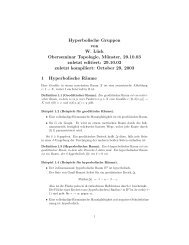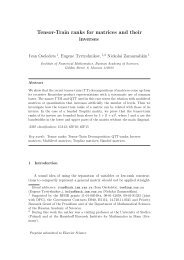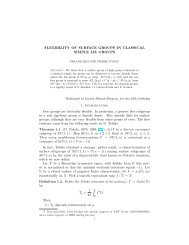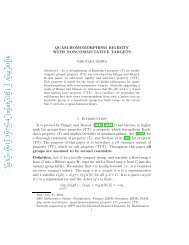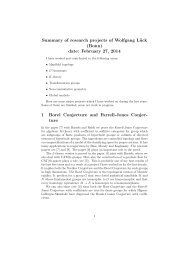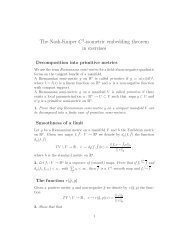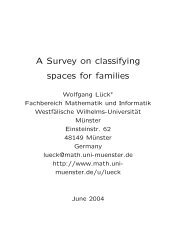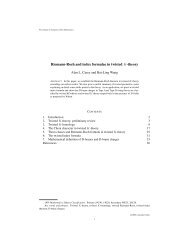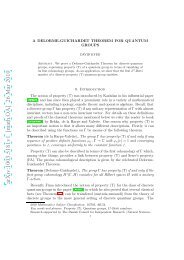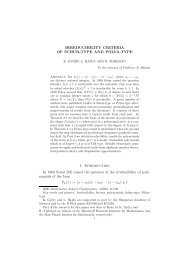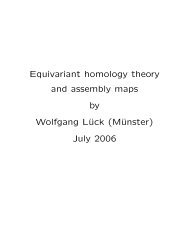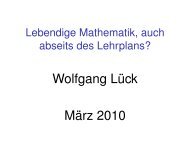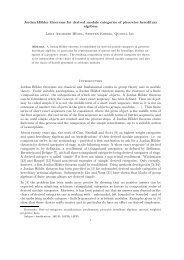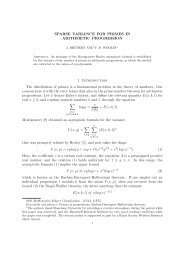Equivariant Cohomological Chern Characters
Equivariant Cohomological Chern Characters
Equivariant Cohomological Chern Characters
You also want an ePaper? Increase the reach of your titles
YUMPU automatically turns print PDFs into web optimized ePapers that Google loves.
as Q-module, K q ({pt.}) is injective as QSub(G; F)-module. From Theorem 4.6we get a transformation of equivariant cohomology theoriesch n G(X, A): K n (G\(X, A))∼ =−→∏p+q=nH p RSub(G;F) (X, A; Hq ({pt.}))= ∏p+q=nH p (G\(X, A); H q ({pt.})).One easily checks that this is precisely the <strong>Chern</strong> character of Example 4.1applied to K ∗ and the CW -pair G\(X, A).5. Mackey FunctorsIn Theorem 4.6 the assumption appears that the contravariant RSub(G; F)-module H q G(G/?) is injective for each q ∈ Z. We want to give a criterion whichensures that this assumption is satisfies and which turns out to apply to allcases of interest.Let R be a commutative ring. Let FGINJ be the category of finite groupswith injective group homomorphisms as morphisms. Let M : FGINJ → R - MODbe a bifunctor, i.e. a pair (M ∗ , M ∗ ) consisting of a covariant functor M ∗ anda contravariant functor M ∗ from FGINJ to R - MOD which agree on objects.We will often denote for an injective group homomorphism f : H → G the mapM ∗ (f): M(H) → M(G) by ind f and the map M ∗ (f): M(G) → M(H) by res fand write ind G H = ind f and res H G = res f if f is an inclusion of groups. We callsuch a bifunctor M a Mackey functor with values in R-modules if(a) For an inner automorphism c(g): G → G we have M ∗ (c(g)) = id: M(G) →M(G);(b) For an isomorphism of groups f : G ∼= −→ H the composites res f ◦ ind f andind f ◦ res f are the identity;(c) Double coset formulaWe have for two subgroups H, K ⊆ G∑res K G ◦ ind G H =ind c(g) : H∩g −1 Kg→K ◦ res H∩g−1 KgH,KgH∈K\G/Hwhere c(g) is conjugation with g, i.e. c(g)(h) = ghg −1 .Let G be a group. In the sequel we denote for a subgroup H ⊆ G byN G H the normalizer and by C G H the centralizer of H in G and by W G H thequotient N G H/H · C G H. Notice that W G H is finite if H is finite. Let R be acommutative ring. Let M be a Mackey functor with values in R-modules. Itinduces a contravariant RSub(G, F)-module denoted in the same wayM : Sub(G, F) → R - MOD, (f : H → K) ↦→ (M ∗ (f): M(H) → M(K)) .20



